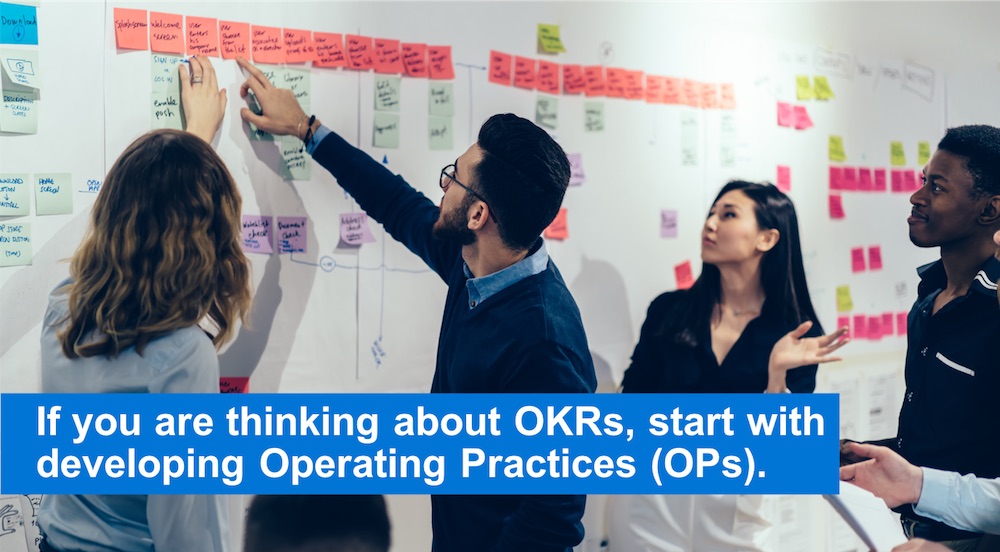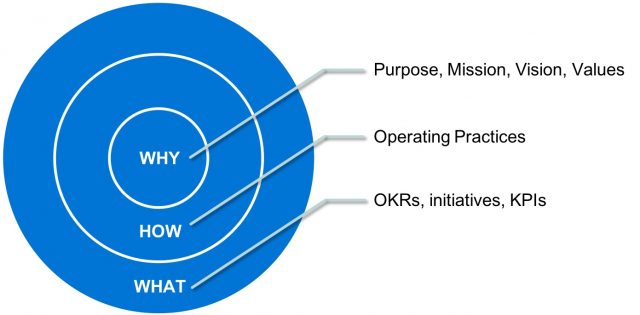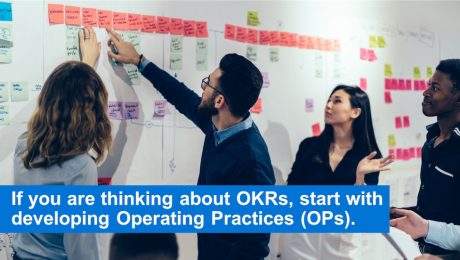Cultural fit or Why companies hire the wrong people

A while ago, I assisted a company in recruiting a new head for the controlling department. The company had identified three candidates, one internal and two external ones, and wanted to find out which would be the best fit. We spent a whole day interviewing them, trying to find out more about their experience as well as their dispositions and motives, but also tested their soft skills in practical cases. At the end of the day, we looked at all the information we had gathered and shared our thoughts.
Candidate A: The most experienced, currently unemployed, not very emphatic but assertive, arrogant and playing hard to get.
Candidate B: The internal talent, not very experienced, great soft skills, loyal, really excited about the prospect of becoming head.
Candidate C: Currently at one of the big accounting firms, lots of experience especially in digital tools, no leadership experience, aspiration to become CFO one day.
Candidate C hadn’t convinced anyone, so he was out quickly.
To my surprise, the CEO then made a strong call for candidate A.
I asked »Why do you think he’s the best fit?« to which he replied »He has the experience and skills. He might not be the most sympathetic guy but that’s no requirement.«
»What about candidate B?« — »A great talent, I really like her but she is not very experienced.«
»But she has been in our talent program that we specifically set up to develop them into leadership positions«, the head of HR shared.
»That’s right«, the CEO said, »but we’re here to recruit the best one for the job today.«
»So we have one more experienced candidate than the other«, I concluded, »How about the best cultural fit?«
The CEO understood what I was getting at and inquired back »Can’t he adapt to our culture? He’s not too old, is he?«
I asked further »If you were in the controlling department, would you personally like to work for candidate A? Day after day?«
He hesitated before he replied: »Probably not.«
»So why would you want to hire him?«
The answer to that question, I believe, is one of the reasons why we sometimes hire the wrong people:
Because we value skills and experience higher than motivation and personality.
And we underestimate what people can learn and overestimate how much they can change their personality and adapt to a new culture.
What are your experiences? Have you ever fallen into this trap before?
- Veröffentlicht in Inspiring Leaders
If you are thinking about OKRs, start with developing Operating Practices (OPs).

The search for better goals
In the course of digitizing their business, a lot of companies are turning to OKRs (Objectives and Key Results). The reasoning being: “If it helped Google and all those startups from the Silicon Valley, it just has to be right for us too!”
And it may very well be. It is indeed a very powerful goal-setting system that can ensure focus, alignment, aspiration and accountability.
But I have also seen a lot of companies be somewhat disappointed or outright disillusioned after having introduced OKRs to their business.
And I’d like to offer an explanation for that.
The prerequisite for OKRs
While a lot of companies claim their OKR’s helped them achieve spectacular success and growth, I think that’s actually an artifact and something else is at work here.
I’m not saying that OKRs are not useful or that you don’t need them. I’m just saying that they are not the major cause for the effect that’s attributed to them. OKRs don’t miraculously create an ambitious culture of agile disruption. It’s rather the opposite: A certain culture leads to an aggressive setting of goals which can then be aligned and focused as OKRs. OKRs are absolutely fantastic but only if they’re built on top of a certain culture.
When I say culture, I am not talking about values, by the way. Values are important but mostly not operative enough. And in most companies they are too much marketing and too little actual practice to have a major impact on daily work. It’s also all too easy to commit the fallacy of believing one has a certain culture just because one has formulated one.
Shaping culture with Operating Practices
What actually drives performance must be something different than just goals. I’d like to call that Operating Practices or short OPs.
Operating practices are very simple and concrete statements on how to operate and behave.
The most famous are probably the Ten Commandments. These are ten, easy to remember rules that guarantee the functioning of a large group.
In the animal world we have the astounding examples of large anthills or swarms of birds and how they coordinate their group without anything resembling human management tools. Something seems to be encoded in each of their DNA that helps them operate in unisan without any hierarchy.
Google’s “10x thinking”
Google has a practice they call „10x thinking“. In simple terms, they think about how they can improve what they do by a factor of 10 times, rather than by 10% like others. It challenges them to think about everything they do in terms of revolutionary change rather than evolutionary change.
The “10x thinking” is not – as many believe – the result of very aspirational OKRs but was merely encoded in them. They were striving for 10x long before they implemented OKRs. It’s in the DNA of Google, not just some byproduct of having OKRs. And that’s exactly where lots of companies go wrong when introducing OKRs. They think they get the Google DNA and Google’s ambition and everyone will then miraculously shoot for the moon. But that’s nonsense. Aspirational goals without the corresponding mindset are not only useless – they can even destroy motivation.
Apple’s “There are 1000 no’s for every yes”
Turn to Apple. Steve Jobs once said “There are 1000 no’s for every yes”. Again that’s not a goal, it’s certainly not a value, but it expresses a basic operating practice: That we will say no to a lot of ideas, concepts and iteration before we actually call something “designed by Apple” and release it to the public. That’s the strive for perfection that will ultimately wow consumers. And that’s worth more than setting specific quality standards or goals in the form of a number.
Operating practices at team level
Operating practices can comprise behavior instructions that are relevant for everyone in a company. But they can also be deployed at the team level.
In a factory, for example, an operating practice could read: “We return tools immediately to the tool bin after we’re done using them”. No ifs, no buts. This is, by the way, very different from formulating a corresponding goal like “Our tools should always be available when needed”. The goal only describes a desired state or result. The operating practice ensures that the goal is actually met even in the absence of any overt goal.
Likewise a bank branch could adhere to the operating practice of “We follow a 360°-advisory approach in every one-on-one consultation with our clients”. Most banks, however, rather try to establish goals concerning 360° advisory like “80 360°-advisory discussion per relationship manager per year”. Something that should be a mindset thus is degraded to a number that one has to hit.
How to start developing your own operating practices
So how can you come up with good operating practices for your own company?
That is clearly no easy task. You can’t just copy-paste Google’s or Apple’s. Some of the best OPs are not even documented and only live in the hearts and minds of people.
A good starting point: The purpose, mission and vision of your own company or team.

WHY does the company exist in the first place? Which aspects in your company DNA are most important to you?
You can take it from there and think about actual practices:
HOW do your best people behave and operate? What do they do and what do they consciously not do?
Also think about the future: Which behavior will be crucial? What do you need more and what less?
Start with two or three practices that capture best the mindset that you’re after.
Write them down. Talk about them. Most importantly: Live them.
Make operating practices the foundation of your goal-setting:
And then, and only then, you should think about if you are ready for OKRs.
WHAT objectives do you want to achieve? How ambitious do you want to or need you to be? Which key results will help you focus and align resources? What is your team willing and able to contribute with their own OKRs? Which initiatives and KPIs will help you manage all efforts?
Sounds like a bit of work – but well worth it!
- Veröffentlicht in Inspiring Leaders, OKR, Change
We hire people for their skills, and we fire them for their attitude. (Jack Welsh)

Ich muss leider sogar noch ergänzen:
Leider feuern wir sie nicht einmal konsequent, sondern lassen zu, dass sie bleiben und die Kultur vergiften.
Ist die Kultur dann einmal vergiftet, macht man sich daran, eine Wunsch-Kultur zu formulieren mit Values, einer Mission,Vision, oder neuerdings auch einem schicken Purpose. Und dann werden Mitarbeiter durch Culture Workshops geschleust und fragen sich, was jetzt anders ist als zuvor. Es sind ja immer noch die gleichen Menschen mit ihrer gleichen Attitude.
Wenn es dem Unternehmen wirklich ernst ist mit der Kultur, muss sich diese erst einmal auf Einstellungen, Beförderungen wie auch Kündigungen auswirken. Den Worten müssen Taten folgen.
Was tun wir aber eigentlich, um die Attitude von Mitarbeitern zu erfassen?
Oder auch: um die Attitude wirklich zu verändern?
Wir suchen talentierte Mitarbeiter mit besonderen Skills, die sich gut selbst steuern können, mit Ambition, Kreativität, Leistungswille.
Aber man kann all das haben und trotzdem ein Idiot sein, der nicht in die Kultur passt.
Auch die beliebten Persönlichkeitstests sagen uns nur ob jemand z.B. eine Tendenz zur Extraversion (Big 5) hat, wenn sie nicht gleich Menschen in Farbkategorien einteilen (DISG). Was sie uns nicht sagen, ist, wie sich jemand in bestimmten Situationen im konkreten Unternehmensalltag verhalten wird. Wird er auch dann noch loyal sein, wenn seine Loyalität negative Konsequenzen für ihn hat?
Was meint eigentlich Attitude?
Das Wörterbuch bietet zur Auswahl: Haltung, Einstellung, Gesinnung.
Aber ich denke, es ist mehr: Attitude sind Neigungen Situationen zu bewerten und entsprechend zu handeln.
Ein Beispiel:
Ich sehe etwa, wie jemand Hilfe braucht, um eine Aufgabe zu erledigen. Und ich bewerte diese Situation als Chance ihm zu helfen und tue das. Oder alternativ bewerte ich sie als Hindernis für meine eigenen Arbeiten und unterlasse die Hilfeleistung.
Jetzt sagen Sie vielleicht: Das ist doch Empathie und die erfragen wir doch.
Ja klar. Aber wir erfragen Empathie so, als wäre das eine Fähigkeit, und so rekrutieren wir zur Empathie fähige Menschen, die nur leider praktisch mitunter jegliche Empathie vermissen lassen. Was unterscheidet aber den bloß Empathie-fähigen vom tatsächlich empathischen Menschen? Das ist Attitude.
Gibt es Instrumente, um die Attitude zu erfassen?
Die gilt es noch zu entwickeln!
Aber keine allgemeinen, sondern ganz konkrete, die zum Unternehmen und der Kultur passen müssen, die es verwirklichen will.
Eine sehr schöne Aufgabe, wie ich finde. Und eine, die wirklich etwas bewegen wird.
Wir sind dran!
Stay tuned & be inspired!
- Veröffentlicht in Inspiring Leaders




